- Home
- Sarah Woodbury
Ashes of Time (The After Cilmeri Series) Page 6
Ashes of Time (The After Cilmeri Series) Read online
Page 6
“Not on me or in my phone. I could take you to his house, but I don’t think he’s there.” Jim checked his watch. “Another twenty minutes to Mission. Then I’ll see what I can do.”
Meg settled back in her seat, her head against the headrest, and closed her eyes. She could feel Jim’s glances, and she knew that he wanted to ask more questions, but he didn’t, for which she was grateful. She had declared to Anna what she believed to be a truth about the time traveling: that they ended up where they needed to be, even if it didn’t seem like it at first. Last time Meg had come to the modern world, she’d landed in an indoor pool in Aberystwyth in a world-class health clinic whose doctors saved Llywelyn’s life.
This time they’d found a friendly face already, and she was hoping that today wouldn’t be the exception that proved the rule.
As Meg had said to Llywelyn only a few hours ago but in another world, and with humor then instead of trepidation, Dear God, what have we done?
Chapter Five
November 2019
Callum
Callum’s mobile buzzed, but since he was relaxing with his wife on a very squashy couch that would require considerable effort to rise from, or even to shift to reach his pocket, he ignored it.
In fact, he’d been ignoring unpleasant news from home all afternoon. Earlier, one of Cassie’s relatives had turned on the television to the news—always a mistake—and it had been full of the riots in London, Manchester, and Liverpool, protesting the new austerity program the British government had instituted. The London office of MI-5 had averted a suspected terrorist attack at the Tower of London that morning. Callum’s country was coming apart at the seams.
Then his mobile buzzed again.
“You’d better get that,” Cassie said, pushing her black hair off her shoulder. “It isn’t Thanksgiving in Cardiff. It’s just a Thursday.”
“It’s half midnight on Friday now.” But even so, Callum allowed two inches to come between Cassie and himself and felt for his mobile phone. A quick glance at the caller ID told him it was Agent Mark Jones, calling from Cardiff, as Cassie had guessed. Callum put the mobile to his ear. “What’s up?”
There was a pause. “You’ve been spending far too much time with your American relatives,” Jones said.
“Jones—”
“Someone’s here.”
Squashy couch or no squashy couch, Callum was on his feet in an instant. He and Cassie had been stranded in the modern world for two years. Having David or another family member arrive wasn’t the same thing as going back, but it was a start. The rest of Cassie’s family had been gathering over the last hour for a meal that would begin at six in the evening. Cassie and Callum had retreated to the living room with two aged aunts who couldn’t hear a word Callum said—or possibly understand it if they did hear it—and about twenty kids.
Raucous or not, everyone looked at Callum as he stood up, the mobile fixed to his ear. He was taller than anyone in the room, with close-cropped dark hair and hazel eyes that snapped with concern.
That same concern was reflected in Cassie’s nearly black eyes. “What is it, Callum?”
His adrenaline had already started pumping. “Where?” Callum moved towards the door, estimating how quickly he and Cassie could drive to the closest airport, which out here wasn’t exactly close, and flight times to the UK.
Cassie grabbed both their coats and followed Callum onto the porch, allowing the screen door to close with a bang. Callum took his coat but didn’t put it on. She shrugged into hers and tied the scarf. Compared to November in Wales, where the temperature hovered around seven degrees (Celsius, that is; forty-five degrees Fahrenheit to Cassie), eastern Oregon was experiencing lows below freezing. Callum’s breath fogged as soon as it left his mouth.
“Well … there, actually,” said Jones. “I have your mobile location on GPS and the flash occurred twenty miles to the east from where you are standing.”
Now Callum’s heart really sped up. He wondered who had come and hoped also that what had brought him, her, or them wasn’t the need for immediate medical attention. Twenty miles to the east of here was closer to the middle of nowhere than where he was currently standing, which was close enough for a man who’d spend most of his life in cities.
“Who else knows about this?” Callum held up one finger to Cassie, who’d moved right next to him, her hand clutching the back of his shirt. She stood on tiptoe, straining to hear what Jones was saying.
“Nobody,” said Jones. “We’re all but shut down, you know that.”
Callum did know that. More than two years without a time travel incident coupled with a worldwide financial crisis had resulted in draconian budget cuts within an already discredited MI-5. Callum’s new department, termed the Project, which he’d taken on with such guarded optimism two years ago, once had three divisions, each dedicated to one aspect of the time travel issue. The first section, in charge of identifying possible time travelers, had instead turned up and been responsible for the arrest of no fewer than eight terrorist cells in the last two years. That was a better record than the entirety of MI-5, and consequently it was the only section the government was continuing to fund. And the only reason Callum still had a job, at least until the year was out.
After that, Jones was to be shuttled from the Project back to MI-5 proper, Callum might find himself sent to Iceland, and the fact that the British government had ever funded a time travel initiative would be instantly—and conveniently—forgotten. Callum was contemplating asking for a pay rise so they could simply sack him for impertinence and be done with it.
“Send the coordinates to my mobile,” Callum said, “and then monitor the traffic. Let me know if anyone—and I mean anyone—gets wind of this.”
“Right,” said Jones, not needing Callum to explain that just because the British government had been shortsighted enough to end the Project didn’t mean that everyone else had given up on it. Penny-wise and pound foolish, Lady Jane might have said, had she still been alive. “And by the way—”
Callum could hear clicking in the background as Jones pounded away on his keyboard.
“—there’s been another bombing. A bad one.”
“What? Where?” Callum took the mobile away from his ear to check for other messages, but there were none. Two months ago, three bombs had gone off simultaneously in what otherwise had been nondescript government office buildings in London, York, and Bristol. Dozens of people had died and many more had been injured.
“The GCHQ in Cheltenham,” said Jones, referring to the Government Communications Headquarters, known casually as ‘Signals’, an intelligence organization dedicated to providing communications intelligence and information to the British government. Since heading up the Project, Callum had worked closely with the director of Signals. The two agencies were dependent upon the same sources of information—satellites, mobile networks, internet communications—to do their work.
“Christ,” Callum said. “When was this?”
“About twenty minutes ago,” said Jones.
“Casualties?” Callum held his breath.
“It’s too soon to know much. It’ll be many, including, we think, the director.”
Callum bent his head and put his mobile to his forehead for a moment, eyes closed, gathering his thoughts. He’d liked the director of Signals, as much as it was possible to like anyone who’d sacrificed as much as he had to reach the peak of his profession. “What was he doing at work at that hour?”
“How often have you worked that late talking to counterparts in Australia?” said Jones. “The only good news is that the flash may go unremarked, and nobody else will know about your friend’s arrival.”
“No one in our government, you mean,” Callum said. “The Americans may have caught it.”
Jones grunted his acknowledgment of that unpleasant fact.
“The Prime Minister might be regretting shutting us down about now,” Callum said. “Without information from GCHQ’s da
ta streams, even MI-5 and 6 are blind.”
“Should I call in whoever might be around?” said Jones. “Delany hasn’t started work in London yet.”
“Let me talk to Tate,” Callum said, referring to the new director of MI-5. “We should be able to get some of our people back temporarily.” The paperwork would be a nightmare, but it would be worth it. “Keep me posted. Given the bombing, I expect to be recalled at any minute.”
“What are you going to do about whoever’s come through?” said Jones.
“Go get them, of course.” Callum pressed ‘end’ on Jones’s bark of laughter and looked down at Cassie.
She was hopping up and down with curiosity, or maybe that was an attempt to stay warm. “What is it? I can tell it’s bad.”
“Someone’s here, and there’s been another bombing.”
“What? Where?”
Her questions were the same as Callum’s had been to Jones and were relevant to both halves of Callum’s statement. Callum chose to answer the first. “Right here … well, to the east of where we are now.” His mobile beeped, indicating that the map Jones had promised to send had come through.
Cassie and Callum put their heads together and studied the blinking dot. “That’s way the heck out there,” she said. “I don’t think it’s close to any road, not even a dirt one.”
As the crow flies, the blinking dot was twenty miles from where they stood, but Callum knew from experience that if a road went there directly, it wasn’t one he wanted to be on. This was rough country: grassland and wheat fields and long narrow draws turning to forested hills the farther into the mountains one went. The entire county, an area slightly less than half the size of Wales, had all of eighty thousand people in it.
The screen door screeched open, and Cassie’s grandfather came onto the porch. He peered into the darkness and then flicked on the light. “Cassie?”
“We’re here, Grandfather,” she said.
“What’s happened?” Art McKay thrust his hands deep into the pockets of his jeans. He had put on his Pendleton wool coat over a checked buttoned down shirt and a cowboy string tie he wore underneath. Shorter than Cassie, he nonetheless was a presence in any room he entered.
Callum had speculated more than once about those long dead Scots who’d emigrated to Oregon, resulting in Cassie’s very Scottish last name. Many of her relatives had suggested that he return for the festival of Highland games that took place up the road every July. That Scottish connection was an odd coincidence among many odd coincidences in the series of events that had led in the end to Cassie’s rescue of him after his company was ambushed by a host of angry Highlanders in Scotland in the Middle Ages.
“Some of our friends have arrived, Grandfather,” Cassie said.
“You’ll be missing dinner then,” he said.
“I’m sorry.” Callum turned the mobile so Art could see the map. “They’re out there all alone.”
Art pointed towards his truck with his lips. “Let me get my keys and tell the others. That’s a lot of square miles to cover. You’ll be needing help.”
Gratefulness spread though Callum like a sip of warm mead. Cassie’s family, led by her grandfather, had accepted him into her life from the moment he’d shown up on this very porch two years ago. And truthfully, while nobody else in the clan had married an Englishman—or a Scotsman rather—they were no strangers to welcoming newcomers into their midst. Callum hoped their openness wouldn’t be tested too far when they found whoever had come through.
During that first trip two years ago (after Callum had recovered from the gunshot wound to his shoulder), he’d discovered how tightly knit this community was. Not only did everyone know his name and something of his history before he arrived, but while he struggled to put names to faces, they all referred to him as ‘that guy Cassie married.’ When he complained about it, she laughed and said that at least they were including him. If they didn’t like him, they would have looked past him as if he didn’t exist.
While Callum left a message for Tate about borrowing some of his former staff, Art organized four truckloads of men, many with rifles in case they encountered wild animals. Callum still hadn’t heard from his employer, which was somewhat troubling. He’d known that he was being shunted to one side. He’d watched it happen. He wasn’t sorry now, since it meant he could get on with what he viewed as his primary job, but it didn’t bode well for his future employment. Callum didn’t think he could go back to being a regular agent.
Or rather, he knew he couldn’t.
As Callum got into Art’s truck, he looked worriedly at Cassie. “For the first time it occurs to me that Jones could be wrong. What if we roused everyone and it’s a mistake?”
“Has Mark ever been mistaken?” she said. “Have the flashes ever not been someone traveling forward or back?”
“No.” Callum racked the seat all the way back, which put him halfway between Cassie in the back seat and her grandfather sitting in front of her. Art drove a big Dodge extended cab truck, beaten and battered but still running after twenty years.
“If Mark is wrong about this,” Cassie said, “my family will blame you, and you’ll be teased every Thanksgiving for the rest of your life for taking us on a snipe hunt.”
“Oh, ta,” Callum said, though on second thought, it might be good to give them something to tease him about besides his accent. As the truck hummed down the road, leading the other trucks, Callum sighed and stretched out his legs.
Thanksgiving dinner was taking place at the house of one of Cassie’s aunts, somewhat south of Highway 84, which ran through the northern part of Oregon. The caravan of trucks crossed the motorway on a flyover, and then Art pulled into the truck stop next to the casino. Cassie stuck her head between the seats. “What are you doing, Tilla?” That was the Umatilla word for ‘grandfather’, which Callum knew from past visits.
“If we’re driving up Meacham Creek, we need gas to make it there and back,” Art said.
Callum exited the truck with Art. Courtesy said that he should be pumping—and paying—for the petrol, but Art brushed away his credit card. “It’s on me. I know how worried Cassie is about your friends. I can see it in her eyes.”
“Thank you,” Callum said. “And thank you for helping us find them.”
“We haven’t found them yet.”
Callum scanned the skyline to the east. “We will.” The words came out a bit harsher and more guttural than he intended, and he returned his gaze to Art’s face.
The two men studied each other for a second before Art said, “You should know by now there’s nothing Cassie’s family wouldn’t do for her.” And then he smirked. “And maybe for you.”
Callum dared to ask, “Do you mean I’ve proved myself?”
“I see how you take care of her.” Art slotted the nozzle into the petrol tank.
Callum laughed, genuinely relieved at his words. “Don’t let Cassie hear you say that.”
Art shot Callum an amused look. As an elder in an Indian tribe, Art was no stranger to strong women. He was also being far more talkative than usual, and in the last five minutes he was two for two in facial expressions Callum had never seen on him before.
Petrol acquired, Callum and Art returned to their seats in Art’s truck. The other trucks circled around, each driven by an uncle or cousin, and fell into line as they headed north past the casino to the crossroads at Mission. The convenience store was still open, with a few customers pulling into the car park as Art turned the corner onto the road heading east.
Callum kept his eye on the map on his mobile phone. It was calculating and recalculating the miles they had to travel to reach the spot where the flash had occurred. The twenty miles would end up being more like thirty before they could pull off the road and continue towards the site on foot.
Then Cassie said, “Wait! Wait!” She shook Callum’s shoulder to get his attention.
“What is it?” He turned to look at her.
Art had sped up a
fter turning right, but now he glanced back at Cassie too. She peered through the rear window. The only thing moving within a mile were the people in the car park, which was lit by four streetlights. “Turn around, Grandfather. Please.”
As usual, Art didn’t expend words that he didn’t have to use, just flipped on his turn signal and executed a five-point turn in the middle of the street. The other trucks behind him slowed and waited until they could turn around too. A few seconds later, Art turned into the convenience store car park, just as a woman in a long dress and a cloak pushed through the front door.
“It’s them!” Cassie jiggled Callum’s seat.
Callum had the door open before Art braked the truck, and his feet hit the ground a second later.
“Meg!” Cassie slammed the passenger seat forward and scrambled out behind Callum.
It had been Meg who’d pushed through the front door of the shop, and she stood on the sidewalk, a bag of crisps and a bottle of water in her hands. Callum had stopped too, one hand on the doorframe as he’d come around it, hardly daring to believe that Meg was really standing on the pavement in front of them. Cassie barreled past her husband and flung her arms around her friend. “I’m so glad to see you!”
Both women were laughing and crying at the same time. Anna had still been in the shop, and she tumbled out the door. Somehow, Callum crossed the distance from Art’s truck to the pavement, and the four companions wrapped their arms around each other and held on.
Looking over the top of the women’s heads, Callum saw Art and the man in whose truck Anna and Meg had arrived meet and shake hands. As was usually the case with tribal elders, Art’s handshake was gentle, hardly a handshake at all by English standards, and then Art patted the man’s upper arm as if they knew each other well.
Meanwhile, Cassie’s other relatives had climbed out of their trucks and gathered around to be introduced to Meg and Anna. Two years ago when she’d returned to the modern world with Callum, Cassie had left it up to her grandfather to explain where she’d been for five years. Callum was pretty sure he hadn’t told anybody anything but the vaguest truth. Certainly the time traveling to the Middle Ages part had been left out.

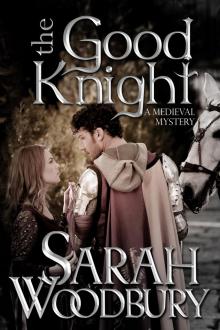 The Good Knight
The Good Knight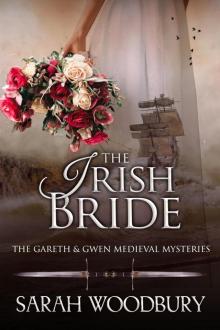 The Irish Bride
The Irish Bride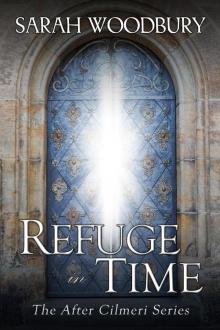 Refuge in Time
Refuge in Time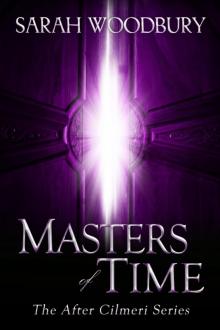 Masters of Time
Masters of Time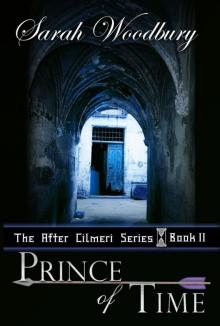 Prince of Time (Book Two in the After Cilmeri series)
Prince of Time (Book Two in the After Cilmeri series)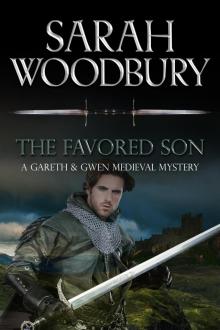 The Favored Son
The Favored Son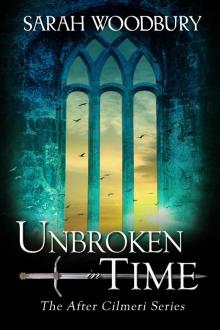 Unbroken in Time
Unbroken in Time![[The Lion of Wales 01.0] Cold My Heart Read online](http://i1.bookreadfree.com/i/03/22/the_lion_of_wales_01_0_cold_my_heart_preview.jpg) [The Lion of Wales 01.0] Cold My Heart
[The Lion of Wales 01.0] Cold My Heart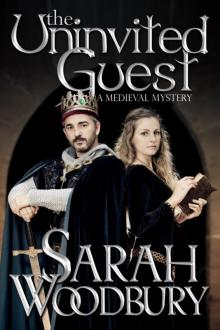 The Uninvited Guest
The Uninvited Guest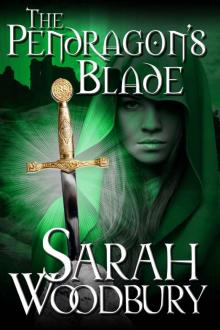 The Pendragon's Blade (The Last Pendragon Saga Book 2)
The Pendragon's Blade (The Last Pendragon Saga Book 2)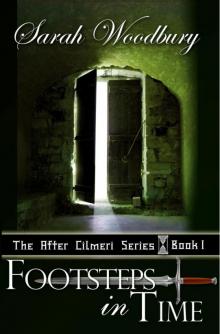 Footsteps in Time
Footsteps in Time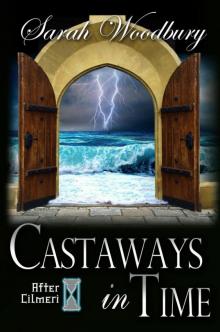 Castaways in Time (The After Cilmeri Series)
Castaways in Time (The After Cilmeri Series) Winds of Time
Winds of Time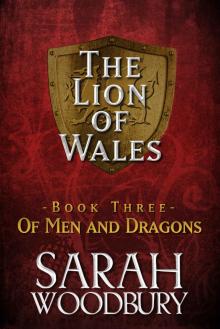 Of Men and Dragons (The Lion of Wales Book 3)
Of Men and Dragons (The Lion of Wales Book 3) Champions of Time
Champions of Time The Pendragon's Challenge (The Last Pendragon Saga Book 7)
The Pendragon's Challenge (The Last Pendragon Saga Book 7)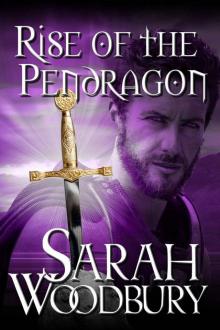 Rise of the Pendragon (The Last Pendragon Saga Book 6)
Rise of the Pendragon (The Last Pendragon Saga Book 6)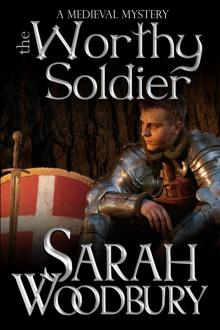 The Worthy Soldier
The Worthy Soldier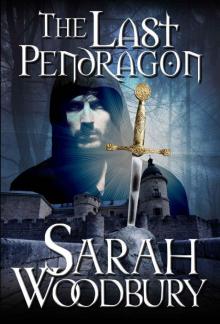 The Last Pendragon (The Last Pendragon Saga Book 1)
The Last Pendragon (The Last Pendragon Saga Book 1)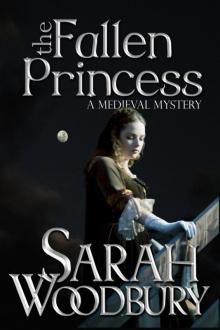 The Fallen Princess
The Fallen Princess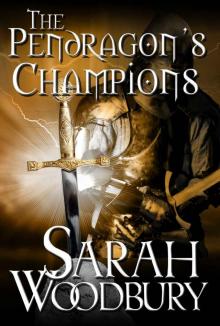 The Pendragon's Champions (The Last Pendragon Saga Book 5)
The Pendragon's Champions (The Last Pendragon Saga Book 5)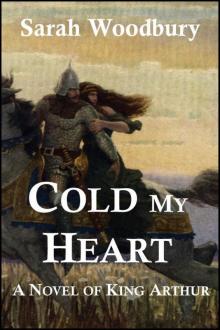 Cold My Heart: A Novel of King Arthur
Cold My Heart: A Novel of King Arthur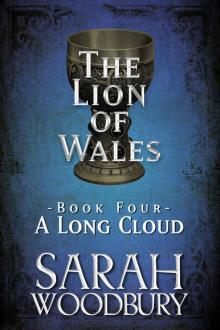 A Long Cloud (The Lion of Wales Book 4)
A Long Cloud (The Lion of Wales Book 4)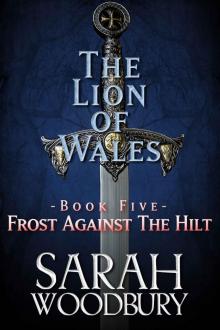 Frost Against the Hilt (The Lion of Wales Book 5)
Frost Against the Hilt (The Lion of Wales Book 5) Daughter of Time: A Time Travel Romance
Daughter of Time: A Time Travel Romance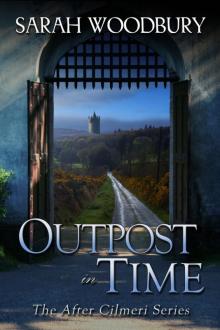 Outpost in Time
Outpost in Time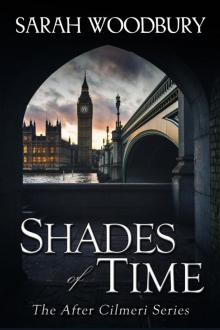 Shades of Time kobo
Shades of Time kobo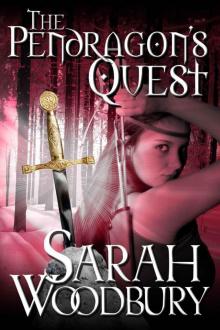 The Pendragon's Quest (The Last Pendragon Saga Book 4)
The Pendragon's Quest (The Last Pendragon Saga Book 4)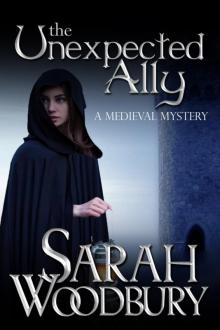 The Unexpected Ally
The Unexpected Ally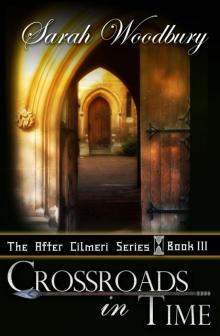 Crossroads in Time (The After Cilmeri Series)
Crossroads in Time (The After Cilmeri Series)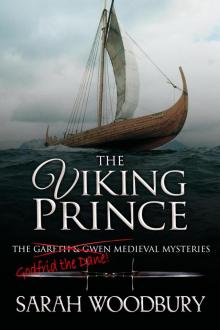 The Viking Prince
The Viking Prince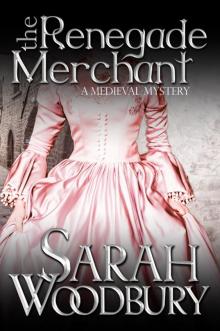 The Renegade Merchant
The Renegade Merchant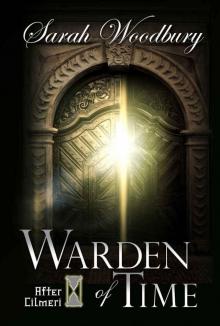 Warden of Time (The After Cilmeri Series Book 8)
Warden of Time (The After Cilmeri Series Book 8)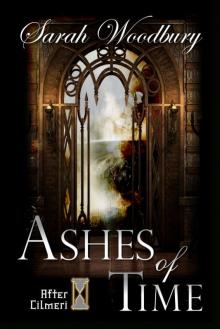 Ashes of Time (The After Cilmeri Series)
Ashes of Time (The After Cilmeri Series)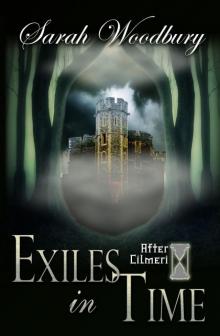 Exiles in Time (The After Cilmeri Series)
Exiles in Time (The After Cilmeri Series)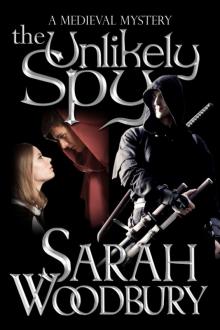 The Unlikely Spy
The Unlikely Spy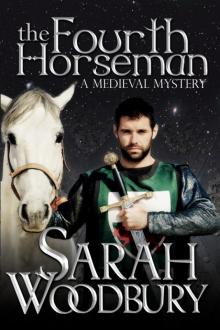 The Fourth Horseman
The Fourth Horseman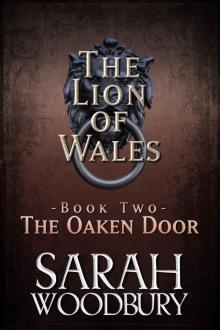 The Oaken Door (The Lion of Wales Book 2)
The Oaken Door (The Lion of Wales Book 2) Song of the Pendragon (The Last Pendragon Saga Book 3)
Song of the Pendragon (The Last Pendragon Saga Book 3) Champions of Time (The After Cilmeri Series, #13)
Champions of Time (The After Cilmeri Series, #13)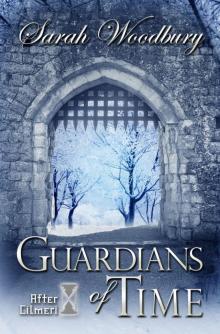 Guardians of Time
Guardians of Time The Bard's Daughter (A Gareth and Gwen Medieval Mystery)
The Bard's Daughter (A Gareth and Gwen Medieval Mystery)